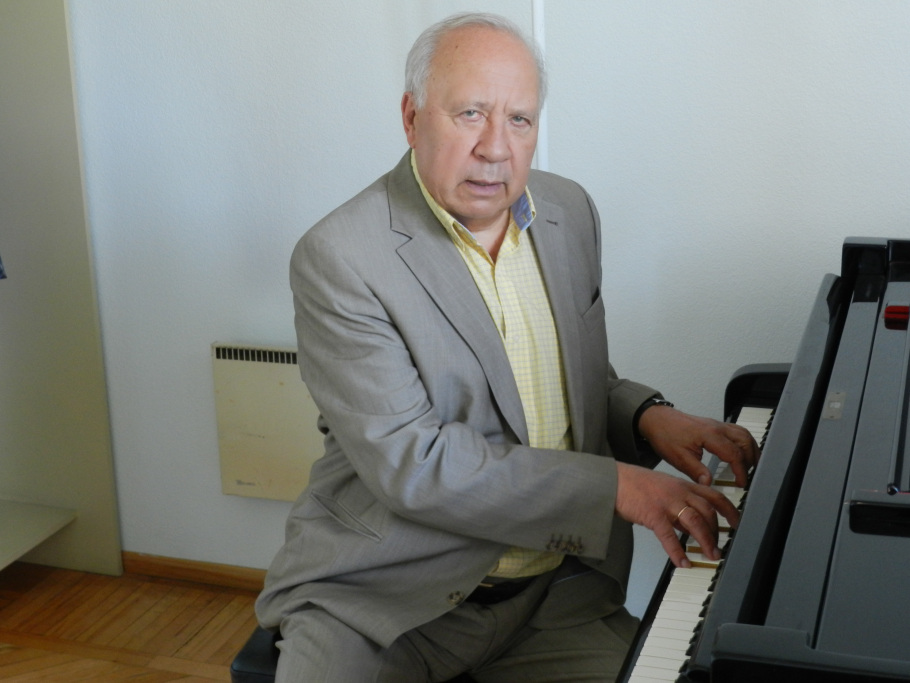The Conversation: Maestro Neeme Järvi

SHORT PROFILE
Name: Neeme Jarvi
Place of Birth: Tallinn, Estonia
Occupation: Conductor
Tallinn Arts was given a special treat this week when Estonian National Symphony Orchestra Conductor Neeme Jarvi joined us for sit-down chat at the Estonia Concert Hall. The maestro has had a long and illustrious career gracing stages across the globe and working with some of the finest orchestras. He splits time between his duties as director of the Orchestra de la Suisse Romande in Geneva, his home in Manhattan and Tallinn doing what he loves best; conducting ERSO. We discussed his professional music debut at aged four, his appreciation of jazz and why Detroit isn’t so bad after all.
TA: How did your life in music begin?
NJ: I was raised in the Nomme neighborhood of Tallinn. We were a musical family. My parents were amateur musicians and encouraged us. My brother Vallo was a big influence in my musical development; I learned a lot from him. He was also a conductor, especially of theatre and opera productions. My professional debut was at aged four! I played a Khachaturian piece on the xylophone on the radio.
TA: And after studying in Tallinn you went to Leningrad?
NJ: Yes, to the Leningrad Conservatory. Leningrad, or St. Petersburg, it’s a miraculous place. Created from a swamp by Peter the Great as a window to the west. A world capital of culture. Fantastic architecture and music. Petersburg is a cultural center for the whole region and certainly helped to broaden the vision of Estonia, to lessen its provincialism. I started out in music as a percussionist but moved into choral and orchestral conducting.
TA: As someone not from this part of the world, I have been very impressed by Estonia’s strength in the arts.
NJ: Yes, but we need to value culture more. We had to struggle to bring back our own language in the 19th century. Have you seen the Estonian Song Festival? Amazing. There is nothing like it in the world. Money is constantly an issue. Musicians in Helsinki make four times what their Estonian counterparts earn. We make fantastic music. The government needs to value our cultural heritage. It is very important. This is what the future generations will remember; music, architecture. It’s a matter of thinking, of priorities. The Linnehall (a massive Soviet era auditorium-TA) just sits empty. It’s narrow minded thinking. We must remember that we’re part of Europe. I could conduct anywhere, but I love this country.
TA: So in 1980 you immigrated to the US?
NJ: Yes, Arvo Part and I left for the West in 1980. I premiered his work Credo, which as the name implies is a profession of faith. This was in 1968. The authorities were in an uproar. They fired the symphony’s music director the next day. The country was completely locked up. It was a total KGB system. But the year we left was about the same time the Soviet Union invaded Afghanistan and they were trying to show the world they weren’t so awful. If they let a few artists immigrate this could help their image. Also my son was ill, so there was a medical reason. We couldn’t get the right medicine in the Soviet Union. We went to New Jersey. When we got to America, my son took two tablets and was fine.
TA: You have an astonishing number of recorded works. How did you develop into such a prolific recording artist?
NJ: Well, I have over 500 recordings. I have, of course, made a point of recording our great Estonian composers–Arvo Part, Eduard Tubin and many others. I was the conductor of the Gothenburg Symphony for 22 years and transformed it into the national orchestra. We recorded all of the Scandinavians–the complete Sibelius and Nielsen. When I was at the Royal Scottish National Orchestra we turned to Russian music and recorded for Chandos. And I have also worked frequently with Deutsche Grammophon. I record for the same reason a painter paints; to leave an artistic record, a legacy. And I loved promoting Estonian music to the world.
TA: Aside from the classical genre, are there other sorts of music you appreciate?
NJ: It’s not so much about genre. There are two kinds of music: good and bad. Jazz is the real American music. Oscar Peterson, Miles Davis–this is great music. There are good melodies and a good atmosphere of music. My son Kristjan is the director of the Absolute Ensemble, a group he started in New York. It is very avant-garde with a strong influence from jazz.
TA: You worked in Detroit for some time, a city that doesn’t have the best reputation. How was that?
NJ: I was the music director of the Detroit Symphony Orchestra from 1990-2005. Detroit was wonderful, a great community orchestra with great musicians. In America it’s a different system. Private donations support the symphony. When this source of money dries up, it is very difficult. The city has, sadly, seen better days.
TA: You are an energetic conductor and involve the audience quite a bit. Is this something you consciously strive for?
NJ: It’s not about this (he waves his arms around frantically). It’s more about body language; a flick of the wrist. There are no bad orchestras, only bad conductors. Bad conducting is like a violinist who just can’t make the instrument work. At the conclusion of a show, I have always done encores. This involves the audience, but it’s really for the musicians. The success goes to the orchestra.
TA: How long do you feel you will stay on with ERSO?
NJ: I’ll leave when I die! I enjoy every day here. It’s wonderful to work with an orchestra with which I only have to speak Estonian. I am enjoying it all; every single minute.